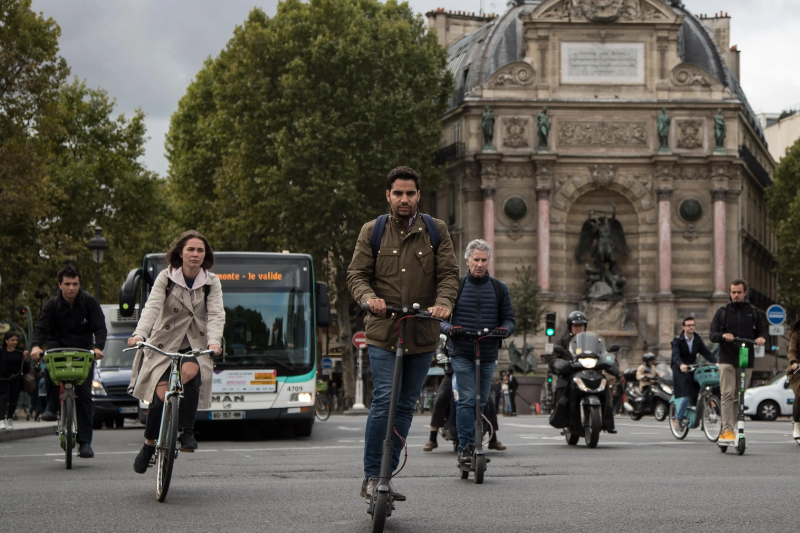Paris has become one of the first European cities to ban rented electric scooters (e-scooters) following an overwhelming vote by residents in favor of the decision.
In an April referendum, nearly 90% of voters supported a city-wide ban on shared e-scooters. However, it’s important to note that this ban doesn’t affect shared electric bike (ebike) services or privately-owned e-scooters.
The ban targets rental e-scooters provided by three licensed companies in Paris: Tier, Dott, and Lime, with a combined fleet of approximately 15,000 e-scooters. These companies have been required to remove their e-scooters from the streets by September 1.
Misuse of e-scooters had become a problem in Paris, with users abandoning them on sidewalks, riding recklessly in crowded areas, and even discarding them into the River Seine. These issues led to injuries and fatalities, mostly involving pedestrians.
In response to these problems, Mayor Anne Hidalgo pledged to enforce stricter regulations, including speed limits and measures against reckless riding and improper scooter disposal.
Keep Reading
The French government also incorporated e-scooters into the national highway code in 2019, imposing regulations nationwide.
While some European cities have imposed restrictions on e-scooters, including speed limits and designated parking areas with fines for violations, outright bans by cities that had previously welcomed them are relatively rare. Paris is not the first city to take this step, but it’s a significant move.
Following the ban on e-scooters, operators like Dott, Tier, and Lime are shifting their focus toward ebikes, aiming to fill the void left by the departing e-scooters.
Even before the ban, these operators reported robust growth in their ebike businesses. Dott saw a 166% increase in e-bike rides in the first half of the year, and Lime reported a 73% rise in bike journeys in the capital city last year.
While ebikes can also pose challenges, including potential sidewalk clutter, they are generally perceived as safer than e-scooters.
It’s unclear how this ban will affect commuters in the long term, and whether Paris may reconsider it in the future.
Some other European cities are reinforcing their commitment to this mode of transportation, but Paris has taken a different path in response to concerns about the misuse of e-scooters.
As of now, Paris citizens will have to bid farewell to the fleets of shared e-scooters that had become a common sight in the city.

